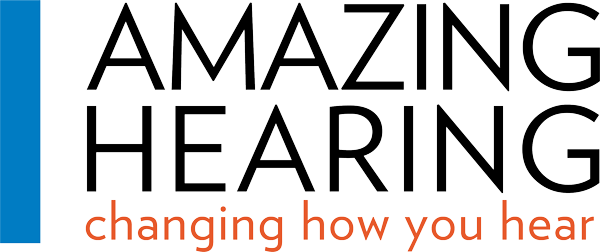Gray hair. Wrinkles. Poor eyesight. Age certainly affects how our bodies function – and your ears are no exception.
As we get older, the tiny hair cells in our ears that help us hear start to break. As the number of functioning hair cells decreases, so does our ability to hear. Unfortunately, you cannot grow any more hair cells, so the damage is permanent. This type of age-related hearing loss is called presbycusis.
What is age-related hearing loss?
Age-related hearing loss (also called presbycusis, pronounced prez-buh-KYOO-sis) is hearing loss that occurs gradually for many of us as we grow older. It is one of the most common conditions affecting adults as we age. Approximately 15% of American adults (37.5 million) ages 18 and over report some trouble hearing, and about one in three people in the U.S. between the ages of 65 and 74 has hearing loss. Nearly half of those older than 75 have difficulty hearing.
Having trouble hearing can make it hard to understand and follow a doctor’s advice, respond to warnings, hear phones, doorbells, and smoke alarms. Hearing loss can also make it hard to enjoy talking with family and friends, leading to feelings of isolation.
Hearing loss typically occurs in both ears as we age. Because the loss is gradual, you may not realize that you’ve lost some of your ability to hear.
Why do we lose our hearing as we get older?
Many things affect our hearing as we age. For example, changes in the inner ear that can affect hearing are common. Age-related changes in the middle ear and complex changes along the nerve pathways from the ear to the brain can also affect hearing. Long-term exposure to noise and some medical conditions can also play a role. In addition, new research suggests that certain genes make some people more susceptible to hearing loss as they age.
Conditions that are more common in older people, such as high blood pressure and diabetes, are associated with hearing loss. In addition, medications that are toxic to the sensory cells in your ears (some chemotherapy drugs, for example) can cause hearing loss. Less commonly, abnormalities of the middle ear, such as otosclerosis, can worsen hearing with age.
- A family history of hearing loss
- Smoking
- Loud noise exposure
Symptoms
Symptoms of age-related hearing loss vary in severity. The loss of hearing will gradually occur over time, so for a while, you may not even know you have a problem. Look out for these signs of age-related hearing loss:
- Difficulty hearing conversations
- Difficulty understanding people in noisy environments
- Difficulty understanding children and others with high-pitched voices
- Ringing in your ears (tinnitus)
Can I prevent age-related hearing loss?
Scientists don’t yet know how to prevent age-related hearing loss, but you can protect yourself from noise-induced hearing loss. Potential sources of damaging noises include loud music, headphones/earbuds used at high volume, construction equipment, fireworks, guns, lawn mowers, leaf blowers, and motorcycles. To help safeguard your hearing as you age, avoid loud noises, reduce the amount of time you’re exposed to loud sounds, and protect your ears with earplugs or protective earmuffs.
Evaluation
Make an appointment with our audiologist if you think that you may have a hearing loss. If you are worried that you may not hear or understand everything the audiologist says, then it may also be helpful to bring a friend or relative along with you. Most hearing professionals begin the examination by chatting about hearing issues. The audiologist will ask you about:
- Your medical history
- When you first noticed a hearing loss
- Any previous exposure to loud sounds
- To what extent do you experience hearing loss in your daily life
This information will be used to understand how the loss developed, and which treatment is best for you. A hearing professional will examine your ears using a lighted probe called an otoscope to look for any physical ear problems. This is a painless and non-invasive procedure.
Standard hearing examinations also include audiometric testing, or tests that physically measure the level of hearing loss. You will be asked to sit in a specially-designed audio booth and listen to a series of tones that are sent via headphones.
You will then indicate which sounds you can and can’t hear, and results will be plotted into an audiogram. The audiologist will use this data to measure hearing loss and to find the appropriate hearing device for your type and level of hearing loss.
Treatment
If you do have a hearing loss your health professional will then tell you which types of hearing aids are available for you.
An audiologist has specialized training in identifying and measuring hearing loss, determining where along the auditory pathway there may be a problem with hearing, and recommending and providing certain hearing loss interventions, such as hearing aids.
Amazing Hearing
There’s no reason to live with untreated hearing loss. Schedule a hearing test with Amazing Hearing, so you can get help as soon as possible. We provide comprehensive hearing health services, from tests to hearing aid fittings. Contact us today to learn more!



